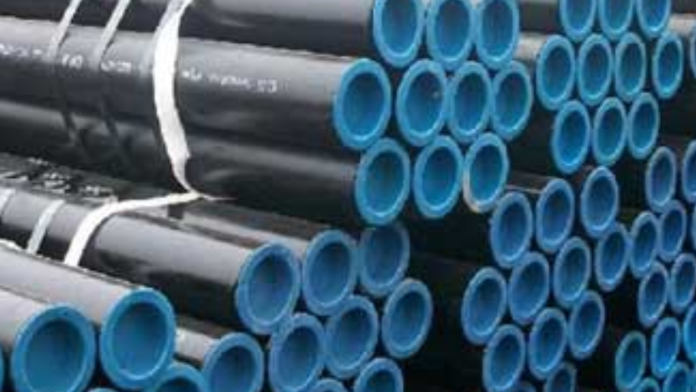The API specifies API 5L X60 as a high-strength steel grade that can be used to make seamless and welded pipes that are primarily used to transport gas, oil, and other hydrocarbons. It is part of the API 5L specification, which establishes criteria for the fabrication of steel pipes used to transport fluids in the petroleum and natural gas industries.
The significance of proper storage for API 5L X60 steel cannot be understated. This steel type, like many others, is subject to environmental conditions, which might jeopardize its integrity and performance if not stored properly. Proper storage facilities protect steel against moisture, humidity, excessive temperatures, and other environmental conditions that can contribute to corrosion and degradation of mechanical qualities.
Proper storage of API 5L X60 steel is critical for preserving its quality, preventing corrosion, maintaining mechanical qualities, and ensuring the safety and dependability of api x60 pipelines in the oil and gas industry. Investing in adequate storage facilities and following suggested storage techniques is critical for improving the performance and lifespan of API 5L X60 steel in pipeline applications.
Common Ways For the Proper Storage of API 5L X60 Pipes
Proper storage of these pipes is critical for maintaining their integrity and ensuring peak performance for installation and use. In this article, we will look at the best ways to store API 5L X60 pipes so that they last as long as possible while also maintaining their quality.
Selecting an Appropriate Storage Location
It is vital to select a proper storage site for API 5L X60 pipes. Choose a dry, well-ventilated space out of direct sunlight. Indoor storage is preferred for protecting pipes from external factors such as rain and humidity. Ensure that the space is large enough to handle the pipes without stacking them directly on the ground since this can avoid corrosion and distortion. Implementing these precautions contributes to the integrity and quality of the pipes during storage.
Providing Adequate Support and Elevation
To avoid damage, store API 5L X60 pipes with proper support and elevation. Store the pipes on racks or supports to keep them elevated and away from direct contact with the ground. To avoid deformation and damage, pipes should not be stacked directly on top of one another. Use spacers or blocking materials to keep stacked pipes separated and equally distribute weight to avoid putting too much pressure on the lower pipes.
Implementing Protective Measures
It is critical to implement protection measures for API 5L X60 pipes to prevent damage and corrosion. Apply the necessary coatings or coverings to protect the pipes from moisture, dust, and other impurities. Fusion-bonded epoxy or polyethylene coatings give another layer of protection against corrosion and mechanical damage. Inspect the coatings regularly for signs of wear or deterioration, and repair or replace them as needed to ensure that the pipes remain protected.
Organizing and Labeling
Organizing and labeling stored API 5L X60 pipes is essential for effective inventory management. Label each pipe with the appropriate information, such as size, grade, and production date. Implementing a systematic storage method based on pipe size and length improves space utilization while reducing the danger of damage during handling. Proper organization allows for quick identification and retrieval of pipes when needed, streamlining processes, and maintaining inventory integrity.
Conducting Regular Inspections
Routine inspections of stored API 5L X60 pipes are required to detect any symptoms of corrosion, degradation, or damage. Examine the pipes visually for dents, scratches, or surface imperfections that could jeopardize their integrity. Set up a documented inspection methodology to ensure consistency and thoroughness. Address any concerns discovered during inspections as soon as possible to prevent further deterioration and maintain the pipes’ long-term reliability.
Implementing Environmental Controls
Maintaining the integrity of stored API 5L X60 pipes requires the use of environmental controls. To reduce corrosion hazards, keep track of temperature and humidity levels within the storage facility. Reduce moisture in the air by installing dehumidifiers or humidity control devices. Implement procedures to prevent exposure to corrosive substances or contaminants. The danger of pipe corrosion and degradation can be reduced by regulating environmental conditions.
Remarks
Proper storage of API 5L X60 pipes is critical for ensuring their durability, integrity, and performance over time. By adhering to the best practices indicated above, stakeholders can reduce the risk of damage, corrosion, and degradation during storage, ensuring that the pipes are in good condition for installation and use. Investing time and effort in efficient storage techniques yields long-term benefits such as increased lifespan, and lower maintenance costs.















